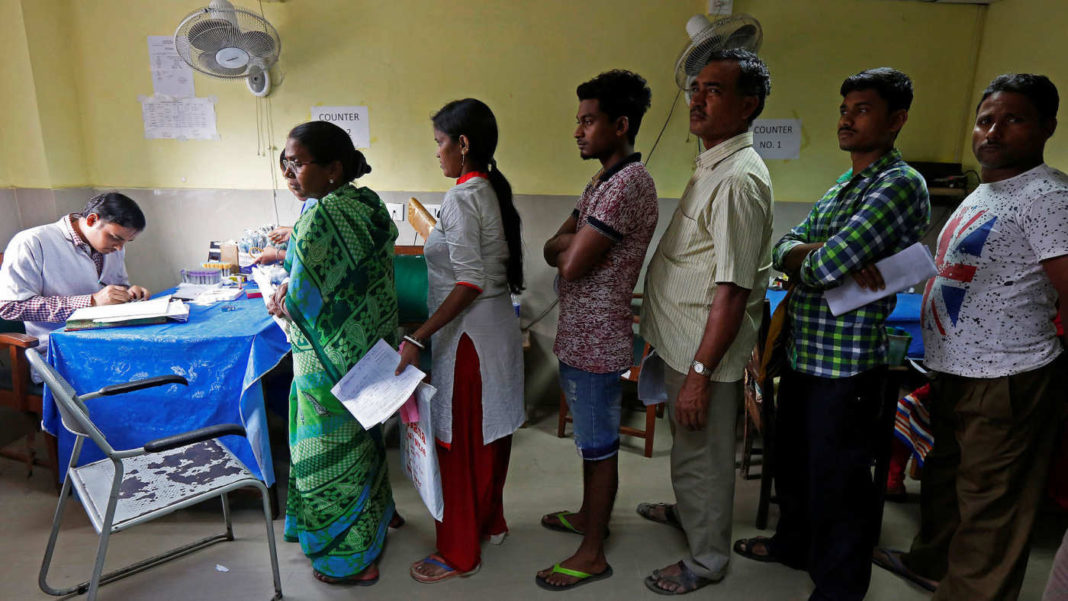MARKET PERSPECTIVE
By J Mulraj
March 16-22, 2024
The huge GST collection should be used to improve social indicators
Finance Minister Nirmala Sitharaman stated recently that India will become a $ 5 trillion economy by 2027-28, from the $ 3.7 tr. it is, today. This is very achievable if the economy grows at a CAGR of around 6.5%. This is assuming there will be no major disruptions such as another global financial crisis, or a major conflict, which the kamikaze global polity is pushing the world towards.
But will reaching a $5 trillion milestone turn India into a developed economy? No, because being a developed country is more than just a number.
India lags badly in social parameters. With GST collections running at a clip of over ₹1.7 lac crores (1 lakh crore = a trillion) a month, there should be funds available to improve the social infrastructure.
As per Wikipedia, in 2021, India, as the #6 economy, ranked low in life expectancy, at 67 years, compared to 84 years in Japan, then the #3 economy, or Germany, at 81 years, then the #5. The world average life expectancy then was 71 years.
India ranks a poor 117 out of 163 countries on the Social Progress Index and 131/189 countries in the Human Development Index. India has a high, 23.2% youth unemployment figure, which, if unaddressed, can turn India’s demographic dividend into a bounced cheque. Our judicial system is in the pits having as many as 50 million pending cases. That is certainly NOT a characteristic of a developed economy.
The Government is doing a lot of work building intercity highways, cutting travel time, and cost of logistics for freight, significantly. However state Governments are neglecting intra city infrastructure. I would recommend all ministers, especially senior citizens, to walk on pavements in Mumbai, a veritable nightmare for the aged, the children, and the infirm. Why should it be this way? Do they not pay their share of taxes?
Politicians have isolated themselves, swishing through crowded streets, sirens blaring, abusing their positions. They should interact with, and understand the travails of, common citizens, by walking the walk. They should study the emoluments and perks of MPs of other countries, like Sweden. Sweden is, verily, a developed country. India has a long way to go.
Being developed is more than just a number!
India holds general elections in May, and USA in November, both of which will be important for stock markets.
In the US elections, the discord between the two parties is becoming more acrimonious by the day. The Dems seem to be trying to weaponize the judicial system to try their darnedest to get Donald Trump out of the way. A New York judge imposed a disproportionate fine, adding up to $450 m on Trump, and also ordering banks not to lend him money to be able to pay it, as he must, in order to appeal. They intend to seize his assets. Another order was passed against his lawyer, Rudy Giuliani, so excessive that he has to sell his house (but still can’t pay it).It was Giuliani, as Mayor of New York, who had cleaned it of organized crime, and set its finances in order.
Perhaps more strange is the case of those who protested on Jan 6, in what is known as the insurrection. As per a video, they had committed misdemeanours, for which peaceful protestors couldn’t be arrested. To arrest them, the authorities used a law which was essentially created to prevent/pursue Ponzi schemes, viz. the Sarbanes-Oxley Act! How this statute was made applicable in this case is perplexing.
The US Federal Reserve held interest rates steady; investors had expected a cut. Fed Chair, Jerome Powell, is playing it safe, though holding out hopes for a cut in the next meeting. This, though, would get derailed if the commercial real estate business gets deeper into trouble, the sort of trouble that would spill over into rural community banks. One should expect a few of these banks to start crumbling in the second half of 2024.
Bank of Japan has reversed, thankfully, its negative interest rate, policy, or NIRP. The central bank was, essentially, managing its yield curve and, using its inexhaustible funds, was buying both bonds and equity. After monetary sense has prevailed, Japanese stock markets have soared, going above its earlier 1991 peak, after more than three decades. Interestingly. This has been partly spurred by rich Chinese investors, because China’s equity market as also its realty market, has collapsed.
Last week the BSE Sensex closed at 72,831, for a weekly gain of 288 points.
Whilst we should be pleased with the growth in India’s GDP, with its thrust on infrastructure (Mumbai coastal road, Vande Bharat trains, intercity highways), and with the achievable target of becoming a $5 trillion economy in another five years, we should now concentrate on social indicators and on human development. And yes, on unconquerable corruption, which flourishes despite promises by all political parties to curb it.
They are either unable or, shudder shudder, unwilling to curb corruption. Their bonds with it are too tight, perhaps.
Picture Source: https://www.ft.com/content/db9331da-4698-11ea-aee2-9ddbdc86190d










































COMMENTS